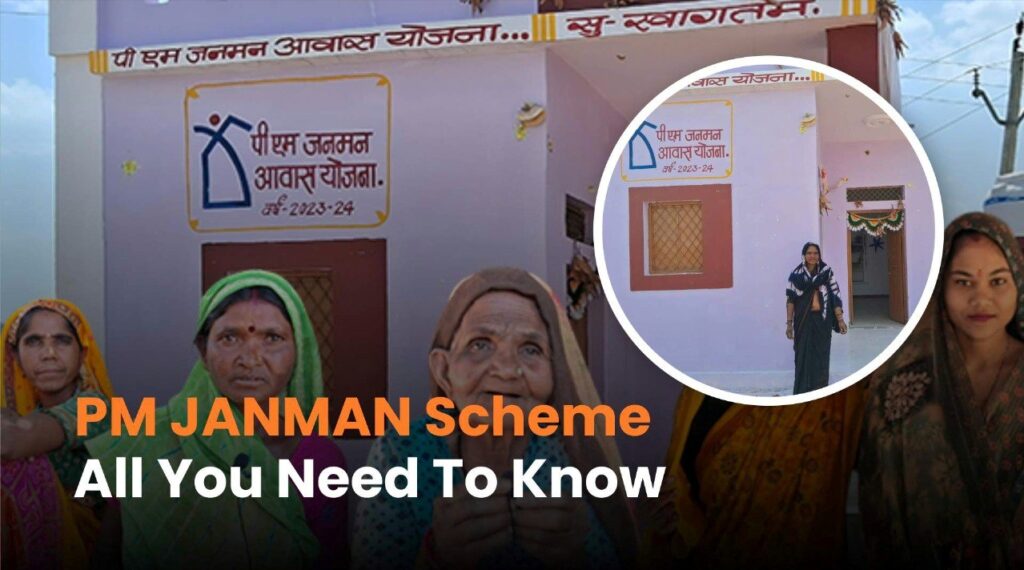If you’ve been following my blogs, you already know I like writing about education and government schemes in a way that actually makes sense to students and parents. Today, I want to talk about a new education scheme that is quietly making a big difference — especially for our tribal communities.
It’s called the PM-JANMAN Scheme, launched in 2025. This one’s not just another announcement — it’s a serious attempt to support education in the most remote and underserved parts of India.

What Is PM-JANMAN?
The full form is Pradhan Mantri Janjati Adivasi Nyaya Maha Abhiyan — or simply, PM-JANMAN. This is a focused government initiative to uplift Particularly Vulnerable Tribal Groups (PVTGs) across India.
Now what does that mean in real life?
It means that tribal students living in remote villages, forests, and hills will now get better access to schools, hostels, digital learning, teachers, and scholarships. These are communities who often don’t even have proper roads, forget a school building — and this scheme is designed for them.
Why I Felt This Needed to Be Talked About
I’ve seen and read about many smart tribal children who drop out of school early — not because they’re not capable, but because their villages don’t have a school nearby, or they can’t afford uniforms, books, or meals.
Some live 10–15 km away from the nearest school. Many don’t have electricity, let alone smartphones or internet to access online classes. It made me realize: education is still not equal in our country.
When I saw the government launching PM-JANMAN as part of the 2025 budget with serious funding, I knew I had to write about it. Because this is not just a tribal welfare scheme — it’s an education opportunity for thousands who’ve been left out.
What Is the Government Doing Under PM-JANMAN for Education?
The PM-JANMAN scheme plans to reach about 75 tribal communities, officially listed as PVTGs (Particularly Vulnerable Tribal Groups), across 18 states and Union Territories. Here’s what they’re actually offering:
- More Eklavya Model Residential Schools (EMRS): Fully free residential schools just for tribal students
- New hostels and classrooms in areas with no proper buildings or facilities
- Scholarships and financial support for uniforms, study material, and tuition fees
- Bridge courses and special classes to help tribal students adjust if they’ve had gaps in learning
- Digital education tools and local language support so children can learn in their native tongue
- Teacher training and hiring of local teachers to avoid language and cultural gaps
This isn’t a small plan. The government is investing over ₹24,000 crore over 3 years, and a big part of that will go into education.
Who Will This Benefit the Most?
This scheme is for children living in tribal areas, especially those who belong to the 75 most disadvantaged tribes in India. It’ll also support:
- Students who dropped out due to poverty or distance
- Girls in tribal areas, who often don’t go to school because of safety or lack of toilets
- Families that want to educate their kids but can’t afford to send them far
- Tribal youth who want to study beyond Class 10 or 12 but have no local college or hostel
If this scheme works the way it’s planned, we’ll see more tribal students appearing in board exams, applying for colleges, and preparing for government jobs.
Why This Scheme Deserves Attention
I’ve written about many schemes over the past year, but this one feels different because it’s not just offering benefits — it’s trying to undo decades of educational inequality.
It’s not just about free books or mid-day meals — it’s about setting up the basic system where none exists. The PM-JANMAN scheme is going into regions that have been forgotten in almost every budget before.
As someone who writes about government jobs, courses, and career updates, I believe this kind of foundation-level support will finally allow tribal youth to compete with everyone else. And that’s exactly how it should be.
We often talk about “Digital India” or “Skill India,” but those dreams don’t reach every corner of this country. PM-JANMAN is trying to reach those corners, and education is at the center of that effort.
If you or someone in your family belongs to a tribal community — or even if you’re just a student, teacher, or NGO worker reading this — please spread the word about this scheme. It could change the entire future for a child living in a village you’ve never even heard of.
Let’s make sure we include every Indian student, no matter where they come from.